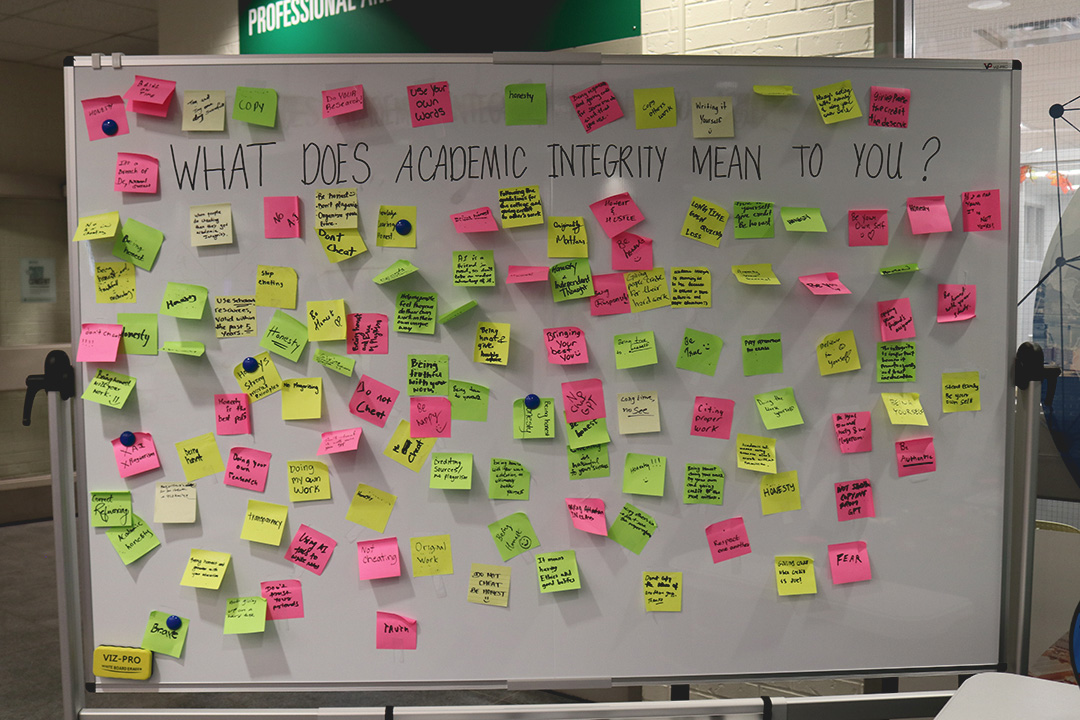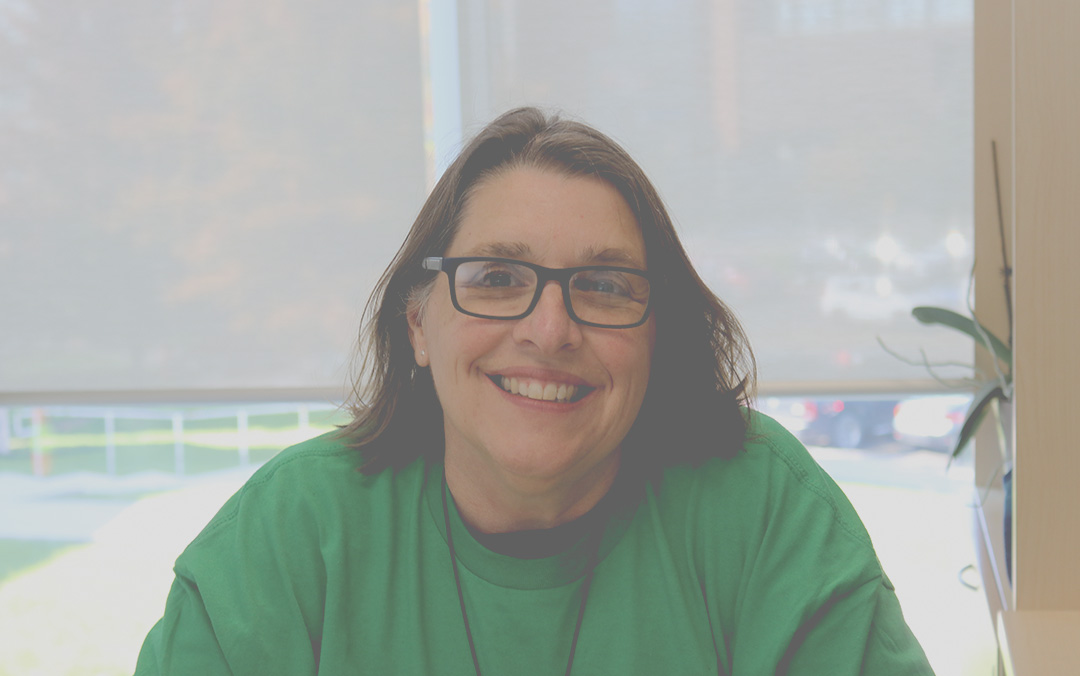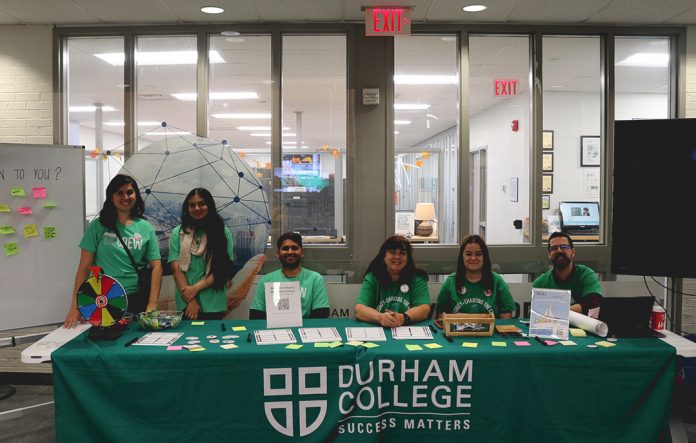Durham College celebrated the International Day of Action for Academic Integrity earlier this month at both of its campuses.
The day was originally called the ‘International Day of Action Against Contract Cheating,’ when it first launched in 2016. Last year the organization, International Centre for Academic Integrity, renamed it to the International Day of Action for Academic Integrity to broaden the scope and interest in the event.
Originally launched in 2016 as the ‘International Day of Action Against Contract Cheating,’ the event was renamed last year by the International Centre for Academic Integrity to broaden its scope and interest.
The theme of this year’s event was All Hands on Deck: Making Academic Integrity Everyone’s Job.
The event aimed to foster honest academic practices, by bringing together experts and students to discuss what academic integrity means to them.

They also organized games, such as giving students scenarios and asking them to think about whether or not it was cheating. A contest promoting academic integrity resources resulted in one student winning an iPad.
Leslie Linstrum, the writing specialist in Student Academic Learning Service (SALS) said that the event was “really trying to just engage students and even college staff” in a conversation related to academic honesty.

She emphasized that while the core principles of academic integrity remain unchanged, the types of violations have evolved. “Students are responsible for doing their work honestly, not taking shortcuts, not giving or taking credit for something they didn’t create,” she said.
Linstrum also highlighted that academic policies are now catching up with technological advancements, adding that “only in the last year and a bit has unauthorized use of generative AI been added to the academic integrity policy.”
Craig Black, a learning specialist for anatomy and physiology at SALS, supported this idea by pointing out that “people cheated even when there wasn’t AI.” He said that academic dishonesty has always been an issue, even with traditional methods like books.
I’ve had students where they’ve turned in their work, and it wasn’t from AI, it was from a book.
As students navigate a landscape increasingly influenced by AI and other technologies, the call for academic honesty is resonating louder than ever. By understanding the importance of self-confidence, authenticity and long-term goals, students can ensure their academic journey remains one of integrity.




